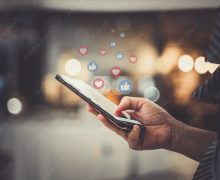The usage of social media and gaming has been a hot topic for a number of years, but only recently were studies conducted to truly understand the effects that prolonged online exposure can have on mental health and the brain. Not all connections to social media are negative though, and some benefits can come from a healthy balance of time online.
Benefits can include:
- Communicate and stay up to date with family and friends around the world.
- Find new friends and communities; network with other people who share similar interests or ambitions.
- Join or promote worthwhile causes; raise awareness on important issues.
- Seek or offer emotional support during tough times.
- Find vital social connections if you live in a remote area, for example, or have limited independence or social anxiety that impedes your ability to get out.
- Find an outlet for your creativity and self-expression.
- Discover (with care) sources of valuable information and learning.
- However there can be negative effects if there has been prolonged time spent online. Multiple studies have found a strong link between heavy social media and an increased risk for depression, anxiety, loneliness, self-harm, and even suicidal thoughts.
Some potential negative effects:
Inadequacy about your life or appearance. Even if you know that images you are viewing on social media are manipulated, they can still make you feel insecure about how you look or what is going on in your own life. Similarly, we are all aware that other people tend to share just the highlights of their lives, rarely the low points that everyone experiences. But that does not lessen those feelings of envy and dissatisfaction when you are scrolling through a friend’s airbrushed photos of their tropical beach holiday or reading about their exciting new promotion at work.
Fear of missing out (FOMO) and social media addiction. While FOMO has been around far longer than social media, sites such as Facebook and Instagram seem to exacerbate feelings that others are having more fun or living better lives than you are. The idea that you are missing out on certain things can impact your self-esteem, trigger anxiety, and fuel even greater social media use, much like an addiction. FOMO can compel you to pick up your phone every few minutes to check for updates, or compulsively respond to each and every alert—even if that means taking risks while you are driving, missing out on sleep at night, or prioritizing social media interaction over real world relationships.
Isolation. Multiple studies have found that high usage of Facebook, Snap chat, and Instagram increases rather than decreases feelings of loneliness. Conversely, the studies found that reducing social media usage can actually make you feel less lonely and isolated and improve your overall wellbeing.
chat, and Instagram increases rather than decreases feelings of loneliness. Conversely, the studies found that reducing social media usage can actually make you feel less lonely and isolated and improve your overall wellbeing.
Depression and anxiety. Human beings need face-to-face contact to be mentally healthy. Nothing reduces stress and boosts your mood faster or more effectively than eye-to-eye contact with someone who cares about you. The more you prioritize social media interaction over in-person relationships, the more you are at risk for developing or exacerbating mood disorders such as anxiety and depression.
Cyberbullying. About 10 percent of teens report being bullied on social media and many other users are subjected to offensive comments. Social media platforms such as “X” can be hotspots for spreading hurtful rumors, lies, and abuse that can leave lasting emotional scars.
Self-absorption. Sharing endless selfies and all your innermost thoughts on social media can create an unhealthy self-centeredness and distance you from real-life connections.
What’s driving social media usage:
These days, most of us access social media via our smartphones or tablets. While this makes it very convenient to keep in touch, it also means that social media is always accessible. This round-the-clock, hyper connectivity can trigger impulse control problems, the constant alerts and notifications affecting your concentration and focus, disturbing your sleep, and making you addicted to your phone.
Social media platforms are designed to snare your attention, keep you online, and have you repeatedly checking your screen for updates. It is how the companies make money. But, much like a gambling compulsion or an addiction to nicotine, alcohol, or drugs, social media use can create psychological cravings. When you receive a like, a share, or a favorable reaction to a post, it can trigger the release of dopamine in the brain, the same “reward” chemical that follows winning on a slot machine, taking a bite of chocolate, or lighting up a cigarette, for example. The more you are rewarded, the more time you want to spend on social media, even if it becomes detrimental to other aspects of your life.
How social media use affects adolescent brain development:
Previous research has shown a connection between high levels of social media use and increased depression among middle and high school youth, with new evidence that social media can also alter brain development increasing the emotional processing of the brain and decreasing the intellectual processing.
Starting around age 10, children’s brains undergo a fundamental shift that spurs them to seek social rewards, including attention and approval from their peers. Between the ages of 10 and 12, changes in the brain make social rewards—compliments on a new hairstyle, laughter from a classmate—start to feel a lot more satisfying. Specifically, receptors for the “happy hormones” oxytocin and dopamine multiply in a part of the brain called the ventral striatum, making preteens extra sensitive to attention and admiration from others. We know that social media activity is closely tied to the ventral striatum, this region gets a dopamine and oxytocin rush whenever we experience social rewards. Thus making children extremely vulnerable to feedback online, changing how their brain processes and significantly influencing their mental health, especially if feedback is negative.
Marnie Thomas LPC
Licensed Professional Counselor
Intentional Growth LLC
(269) 447-1211
https://intentionalgrowthllc.com/
 Athletic Mentors
Athletic Mentors